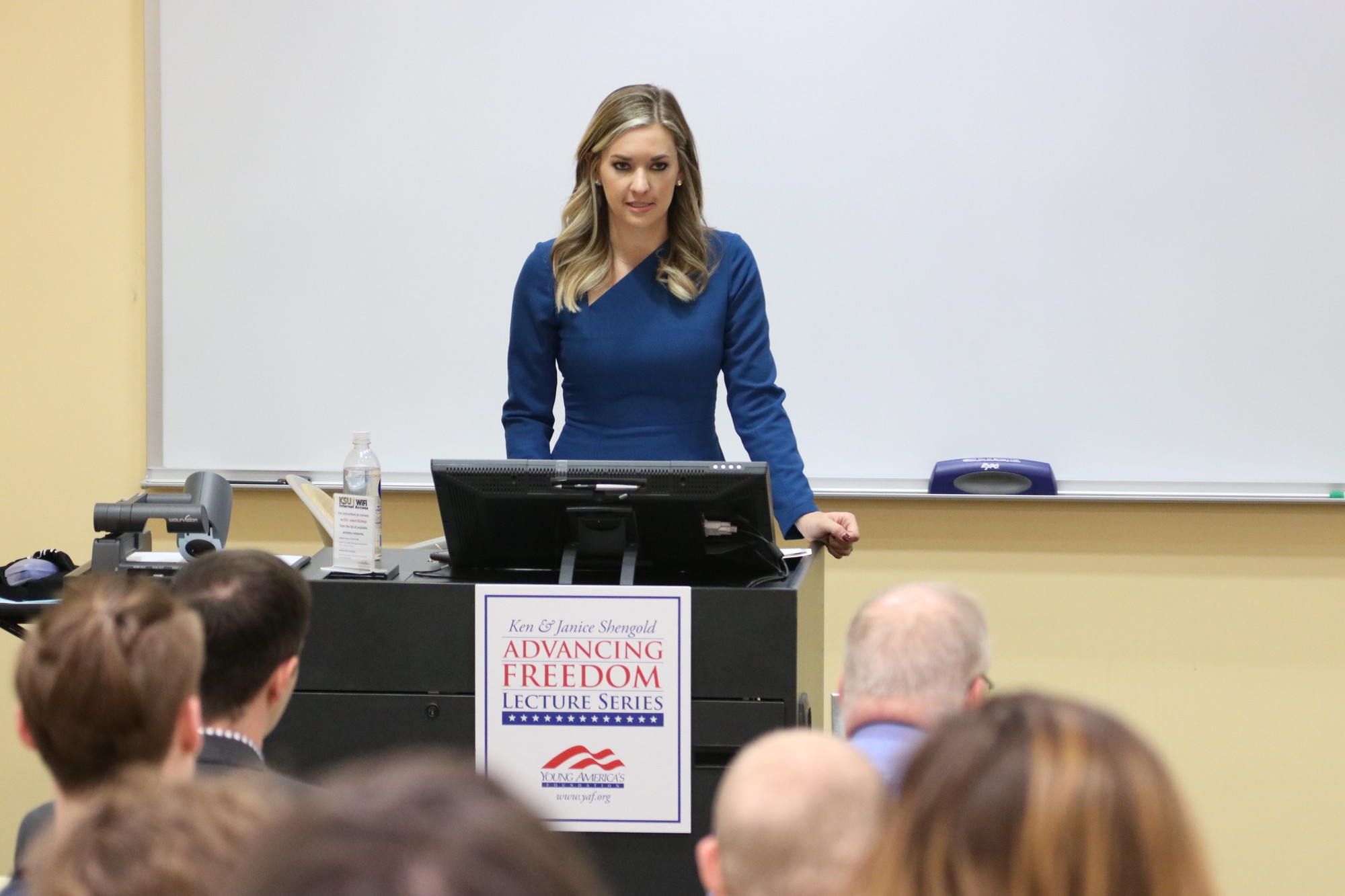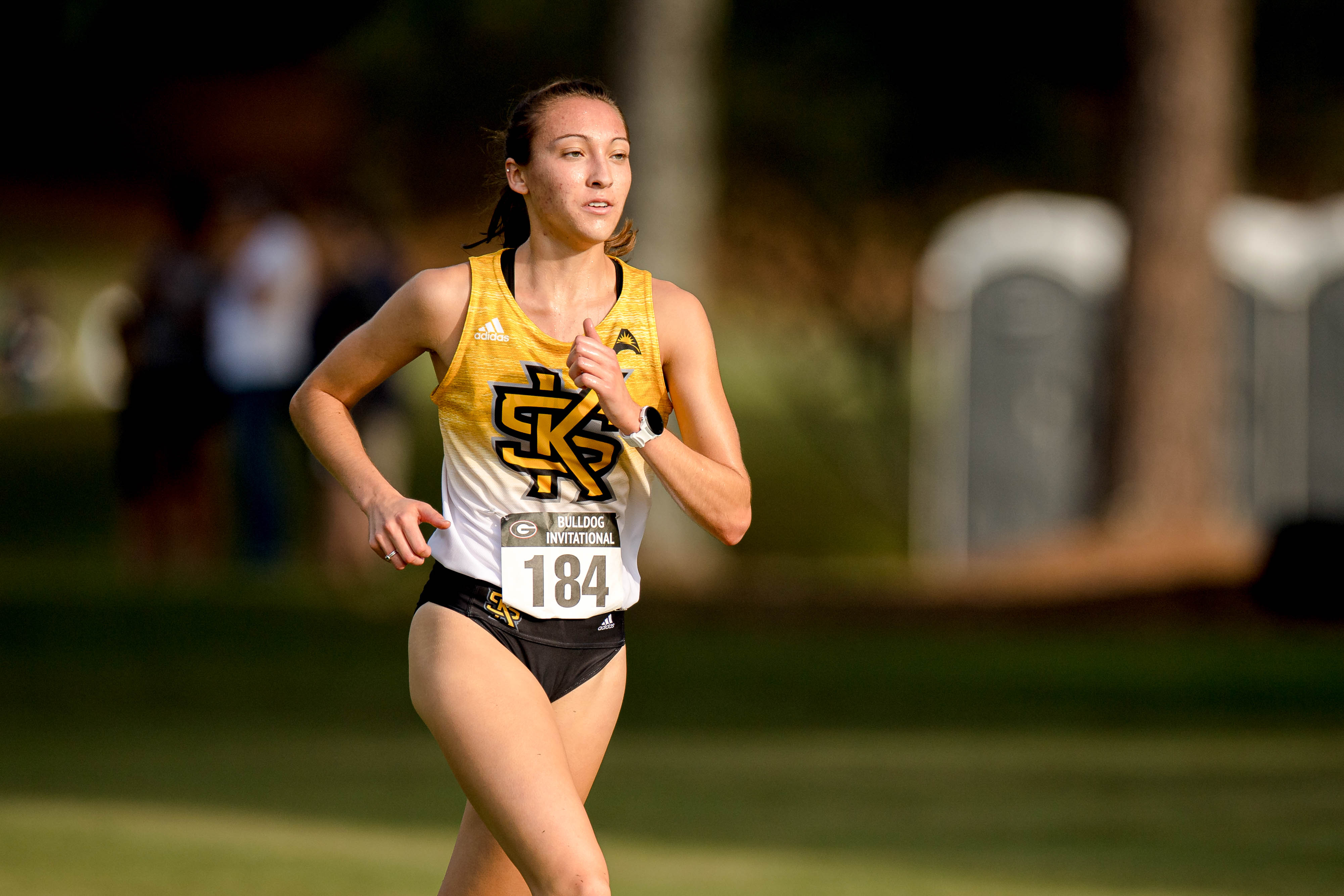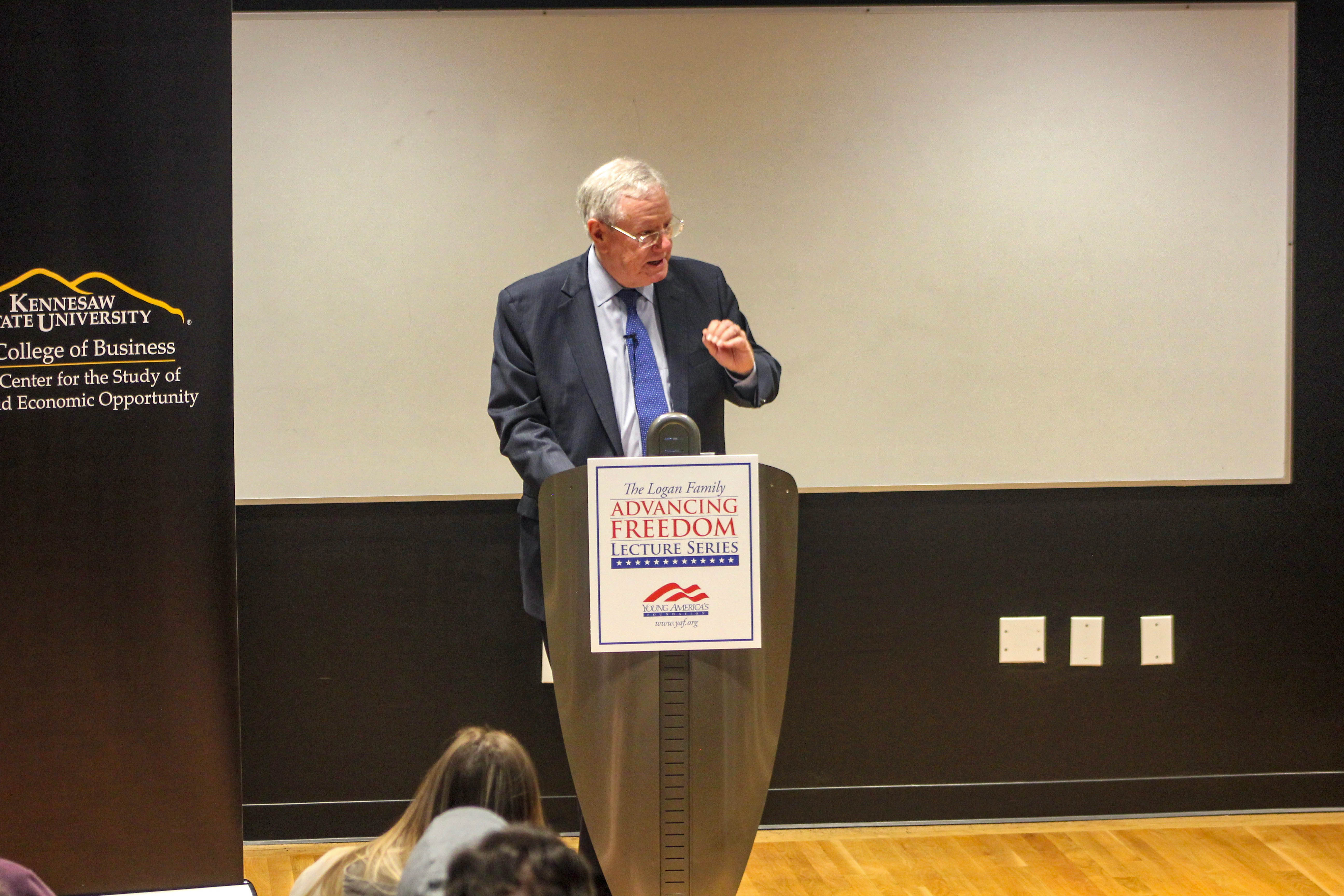The Young Americans for Freedom chapter at Kennesaw State hosted Katie Pavlich, Fox News contributor and editor at Townhall magazine, at an event Wednesday, March 7, to speak about liberal bias in the media.
Approximately 100 students and faculty members gathered in Prillaman Hall to hear Pavlich speak about “the ways in which media is being used as leftist propaganda,” YAF said in the event description.
“I think it was important for her to come speak because media bias is a major topic in the United States today,” said YAF Co-Chair Zachary Bohannon. “You always hear this talk of fake news.”
At the event, Pavlich spoke about her personal experiences as a journalist. She gave examples of times she felt liberal bias in her college journalism classes and during her work in Washington D.C.
She said in her classes that students were only required to read sources such as The New York Times and The Washington Post, and she explained that Fox News was criticized much of the time. She said instructors thought of sources such as CBS, NBC, MSNBC and CNN as “the gold standard” for broadcast news.
“They regularly bury stories that are unfavorable to their narrative, and they push stories that are favorable to their own ideology,” Pavlich said.
Pavlich concluded her lecture by saying the problem is not media bias, but rather the media’s lack of honesty about being biased.
“The issue for me, and I think for a lot of people, is reporters at CNN and MSNBC claiming the moral high ground on news and fact checks and pretending they are the middle of the road on every story when it couldn’t be more obvious that they aren’t,” Pavlich said.
After her speech, Pavlich opened the floor for questions. An audience member questioned her about bias in right-wing media, specifically toward Black Lives Matter protests, and asked what her thoughts are on how to stop the bias from happening.
“I think you have to really stop attacking people personally and go for the substance of the issue,” Pavlich said. “This isn’t about black and white, it’s about policy position. How does the law impact X, Y, and Z?
“What is the policy we are talking about and debating here?” she continued. “Rather than resorting to lazy argumentation, which is, ‘Well, you have white privilege, and because you’re white you can’t talk about Black Lives Matter.’ That’s a problem.”



